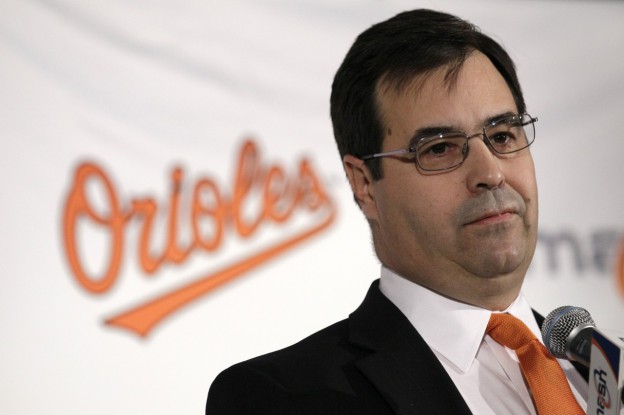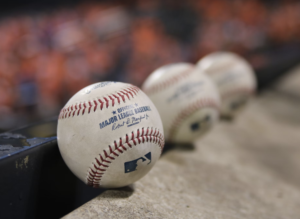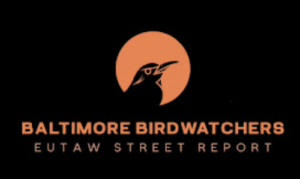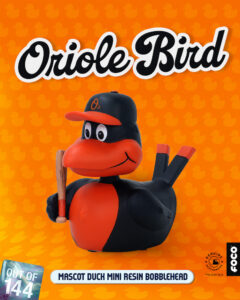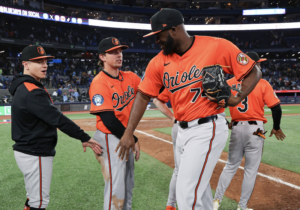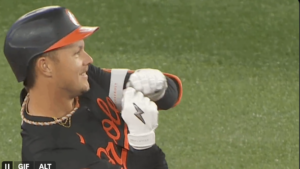From the moment the Orioles signed Nelson Cruz last offseason, it was very clear that it was just a one-year rental; therefore it was no surprise when he left. From the moment the Orioles traded for Andrew Miller in July, it was clear he was just a rental for the playoff run; therefore, it was no surprise when he left. From the moment the Orioles chose to not pick up Nick Markakis’ 17.5 million dollar option, it just seemed like a matter time before the Orioles would sign him to a long-term extension.
Of course, the Orioles in the end were unable to re-sign Markakis, leaving Oriole fans angry and confused. However, this anger and confusion was soon replaced with the logical realization that: A. Nick Markakis, all things considered, was probably not a good value for what the Atlanta Braves gave him, and B. Dan Duquette is not done yet and will make the proper moves to replace what the Orioles have lost so as fans, we should give him the benefit of the doubt. Now much has been written on this site, as well as elsewhere, analyzing the Markakis contract. However, very little has been said or written about why Dan Duquette deserves the benefit of the doubt. In fact, there are three very well–written articles on this very site about Nick Markakis, and each article almost off-handedly mentions how they trust Duquette to make the correct moves. The fact that Oriole fans have been so quick to put their faith in an Orioles general manager surprises me, given the Orioles history.
Before I embark on this brief retelling of recent Oriole’s management, I feel compelled to warn you that it will get a bit complicated. Between Pat Gillick leaving in 1998 to the hiring of Andy MacPhail in 2007, the Orioles had five different General Managers (though I use the term “General Manager” loosely). Frank Wren came after Gillick in 1998 and only lasted a year. Then Syd Thrift somehow lasted three years despite being quite possibly the worst GM in Orioles history, but at least with Thrift you knew who was in charge.
After Thrift things got complicated. So there was the tag team of Jim Beattie and Mike Flanagan as co-general managers, but of course you can’t have co-general managers, that’s ridiculous, so let’s make up some titles and have Beattie be the Executive Vice President of Baseball Operations and Flanagan be the Vice President of Baseball Operations. Beattie was fired in 2005; thus, Flanagan was promoted to Executive Vice President of Baseball Operations.
However the whole “one GM” thing didn’t last very long as Jim Duquette was soon hired to fill Flanagan’s role that he had left to go replace Beattie’s role. (You still with me?) By 2007, when Andy MacPhail was named President of Baseball Operations, Duquette had left and since President of Baseball Operations clearly trumps Executive Vice President of Baseball Operations, Andy MacPhail become the new man in charge. Finally, for the first time since Thrift, with MacPhail there was clear and effective leadership at the top.
Needless to say, between Gillick and MacPhail there was a lot of bad leadership. From draft picks to free agent signings to player development to pointless trades, everything that could go wrong with an organization went wrong in these nine years. And it went so badly, not despite the general managers but because of the general managers. They were horrendous.
Then Andy MacPhail entered the scene and for the first time in a long time it felt like the Orioles at least had someone who had a plan and had the baseball instincts and guts to make the difficult decisions.
So to recap – before MacPhail there were five straight incompetent General Managers and then MacPhail came in. And though MacPhail never won with the Orioles, at least he wasn’t terrible. And now with that history, Oriole fans are supposed to put their faith in Duquette? Okay, before we judge Duquette one way or the other let’s look at his tenure a little more closely.
Life Before Duquette
MacPhail served as President of Baseball Operations from 2007-2011. Dan Duquette inherited a team that was largely put together by MacPhail. Despite MacPhail’s failure to “grow the arms and buy the bats” as was his initial plan, many of the core players of the current Orioles roster were assembled by him through the draft and trades. Though unable to draft pitchers effectively, he did better with position players, drafting Matt Wieters in 2007 and Manny Machado in 2010. Additionally, MacPhail will forever be known as the master of trades. I know we all know the list of trades, but they are so one-sided that I love revisiting them. In February of 2008 MacPhail sent media darling Eric Bedard to Seattle in a deal that brought Adam Jones, Chris Tillman and George Sherrill to Baltimore. Then in the 2010 offseason, the Orioles traded Jim Hoey and Brett Jacobson to the Minnesota Twins for J.J. Hardy. Finally, at the 2011 trade deadline, MacPhail and the Orioles received Chris Davis and Tommy Hunter for Koji Uehara.
MacPhail’s tenure wasn’t all roses though, as he missed on several draft picks (anyone seen Matt Hobgood recently?), and more significantly, he missed on several free agent signings (Vladimir Guerrero, Garrett Atkins, Derek Lee… okay I’ll stop here before I start giving people nightmares). However, the free agent signings had a silver lining. For all the bad free agent signings that MacPhail made, and there were several, Duquette did not inherit any of these bad signings because MacPhail never signed a free agent to more than a two-year deal. This tendency to not give long-term contracts appears to be a philosophy that for the most part Duquette is continuing.
Of course, it should be also mentioned here that MacPhail’s most important move may have been whom he hired as manager. In 2010, MacPhail hired Buck Showalter who at the time was often criticized for being a micro-manager and had been out of the game since 2006.
To summarize, Andy MacPhail left Duquette with a strong core of young talented players and money to spend because MacPhail didn’t hamstring the Orioles with bad contracts. Oh, and he also left Duquette with a pretty good manager to lead the team. So what did Duquette do with what was left to him?
2011-2012
Dan Duquette is hired after another losing season in 2011. However, Duquette took a core of talented players and made several additions to the team that played a large role in giving the Orioles their first playoff appearance since 1997. These additions included starting pitchers Jason Hammel, Wei-Yin Chen and Miguel Gonzalez as well as picking up a couple veterans like Joe Saunders and Nate McLouth. The Gonzalez and Chen signings still remain as two of the best signings that Duquette has made. Before the Chen and Gonzalez signings there was a belief that the Orioles would either have to draft and develop starting pitchers or throw a ton of money at free agent pitchers; however Duquette was able to find the impossible: quality/inexpensive starting pitching.
2012-2013
After the 2012 season, Duquette and the Orioles did virtually nothing. Outside of some minor moves like re-signing McLouth to a one-year deal and adding bench players like Danny Valencia and Alexi Cassilla, the Orioles did next to nothing. The result: In 2013 the Orioles didn’t catch as many breaks as they did in the previous year and therefore, finished with 85 wins. Overall, despite missing the playoffs, many O’s fans considered it a relatively successful season as it proved the Orioles were actually a good ball club and 2012 was not a fluke. It’s also worth mentioning that during the season Duquette did trade for Bud Norris in a move that would have much more of an impact in the 2014 season.
However, with going from playoffs in 2012 to the outside looking in in 2013, the pressure was on Duquette to take this good club and make into a great club that could return to the playoffs.
2013-2014
The first significant move last offseason was trading away Jim Johnson to free up some money – a move that in retrospect is viewed as a success, but ironically not for what we got in return (Jemile Weeks) but more for addition by subtraction. Then in February, the Orioles signed Nelson Cruz to a one-year deal and Ubaldo Jimenez to a 4-year deal. Both deals, but especially the Cruz deal, were considered as good-value deals. Cruz ended up having a career year. Jimenez ended up having a very disappointing year. Johnson not being on the team allowed Buck Showalter to try a couple options at closer, eventually selecting Zach Britton who turned into one of the best closers in all of baseball.
Other notable moves included: signing Steve Pearce just a few days after releasing him and trading for Andrew Miller who was very effective late into the season and in the playoffs. The result of this season was of course, the Orioles winning the AL East. Duquette’s moves of signing Cruz, trading for Bud Norris the previous year and signing Steve Pearce all paid significant dividends.
2014-2015
This will be Duquette’s most challenging offseason yet. Much to the chagrin of many Oriole fans he did not re-sign Markakis, Cruz or Miller. With these losses he cannot just sit back and do nothing like he did after the 2012 season. It also may be too much to ask to find a Cruz-type player just waiting around in February looking for a one-year deal.
So what will Duquette do? Will he miraculously find another Pearce or Chen? Will he break away from his normal low-risk moves and make another Jimenez-type deal signing a player to a long-term, big money deal? Will he try his luck once again in the trade market hoping to find another impact player like Miller?
Or will he just sit back and decide that if no one wants to sign on his terms, then he won’t sign anyone at all? Only time will tell. And only time will tell if Oriole fans can, for the first time in a long time, put their complete trust in an Orioles GM.
[Ed. Note: Matt wrote this over the weekend, BEFORE all the crazy Duquette-to-Toronto rumors started flying.]

